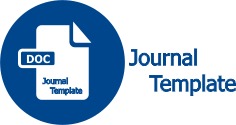AKUNTANSI KEPERILAKUAN BERBASIS NILAI-NILAI EKONOMI UNTUK MENINGKATKAN KINERJA RUMAH SAKIT
DOI:
https://doi.org/10.30651/blc.v8i01.676Abstract
The purpose of this paper is to determine the role of behavioral accounting based on economic values in improving the performance of hospitals. As a business entity, the hospital is required to continue to expand its commercial customers as well as social needs. It required the support of accounting systems that can be accommodate the changing needs of patients, technology, and human behavior that moves dynamically.Many behavioral theories are available to be used to adjust the design of accounting systems specific hospital. Content Theories such as Maslow's Hierarchy of Needs, Herzberg's Two Factor Theory, Alderfer's ERG Theory as well. Process theory being that can be used is the theory of motivation proposed by Vroom and Porter and Lawler, while the Contemporary Theories of Equity Theory and Attribution Theory.Expected with the use of behavioral theory that according to hospital characteristics can be generated accounting system that can drive sustainable performance by continuous improvement.
Key-words: behavioral accounting, accounting systems, hospitals, performance.
References
Chapra, M.Umer. 2001. Masa Depan Ilmu Ekonomi, Sebuah Tinjauan Islam. Jakart: Penerbit Gema Insani.
Chenhall. R.H. dan D. Morris. 1986. The Impact of Structure, Environment, and Interdependence on the Perceived Usefulness of Management Accounting System. The Accounting Review. January. Pp. 18–35
Fisher, J.G. 1995. Contingency Theory, Management Control System and Firm Outcome: Past Results and Future Directions. Behavioral Research in Accounting.
Gordon, L.A. dan V.K. Narayanan. 1983. Management Accounting System, Perceived Environmental Uncertainty and Organization Structure: An Empirical Investigation. Accounting Organizations and Society.
Hoopwood, A.G. 1972. An Empirical Study of the Role of Accounting Data in Performance Evaluation. Journal of Accounting Research. Pp. 156 – 182.
Ikhsan, Arfan & Muhammad Ishak. 2005. Akuntansi Keperilakuan. Salemba Empat. Jakarta.
Kaplan, Robert S. and David P. Norton. 1996. The Balance Scorecard : Translating Strategy into Action. Boston, Massachusetts: Harvard Business School Press.
Kaplan, Robert S. and David P Norton, 2001. The Strategy Focused Organization: How Balanced Scorecard Companies Thrive in The New Business Environment. Boston, Massachusetts: Harvard Business School Press.
Kren, L. 1997. The Role of Accounting Information in Organizational Control: The State of The Art. Behavioral Accounting Research: Foundations and Frontiers. 2 – 48.
Kren, L. dan W.M. Liao. 1988. The Role of Accounting Information in the Control of Organizations: A Review of the Evidence. Journal of Accounting Literature. pp. 280 – 309
Luthans, F. 1998. Organizational Behavior. New York: McGraw-Hill. 8 th ed.
Mangkunegara, Anwar Prabu. 2000. Manajemen Sumber Daya Manusia Perusahaan, cetakan pertama. Bandung: PT. Remaja Rosdakarya.
Murray, D. 1990. the Performance Effect of Participative Budgeting: An Integration of Intervening and Moderating Variables. Behavioral Research in Accounting. Pp. 104 –123.
Otley, D. T. 1978. Budget Use and Managerial Performance. Journal of Accounting Research. Pp. 122- 149
Qardhawi, Yusuf. 2001. Norma dan Etika Ekonomi Islam. Jakarta: Gema Insani Press.
Robbins, Lionel. 1952. An Essay on the Nature and Significance of Economic Science. Macmillan and Co Limited ST Martins Street. London.
Samuelson, Paul A. 1980. Economics, International Student Editions. Tokyo: MacGraw–Hill International Book Company.
Shields, M.D. dan S.M.Young. 1993. Antecedents and Consequences of Participative Budgeting: Evidence on the Effect of Asymmetrical Information. Journal of Management Accounting Research. Fall. Pp. 265 – 280
Siegel, G.; Marconi, dan Helena R. 1989. Behavioral Accounting. SouthWestern Publishing Co.
Skousen, Mark. 2006. Sang Maestro Teori-teori Ekonomi Modern, Sejarah Pemikiran Ekonomi. Jakarta: Prenada.
Soejitno S, Alkatiri A. dan Ibrahim E. 2002. Reformasi Perumahsakitan Indonesia. Jakarta: Grasindo.














